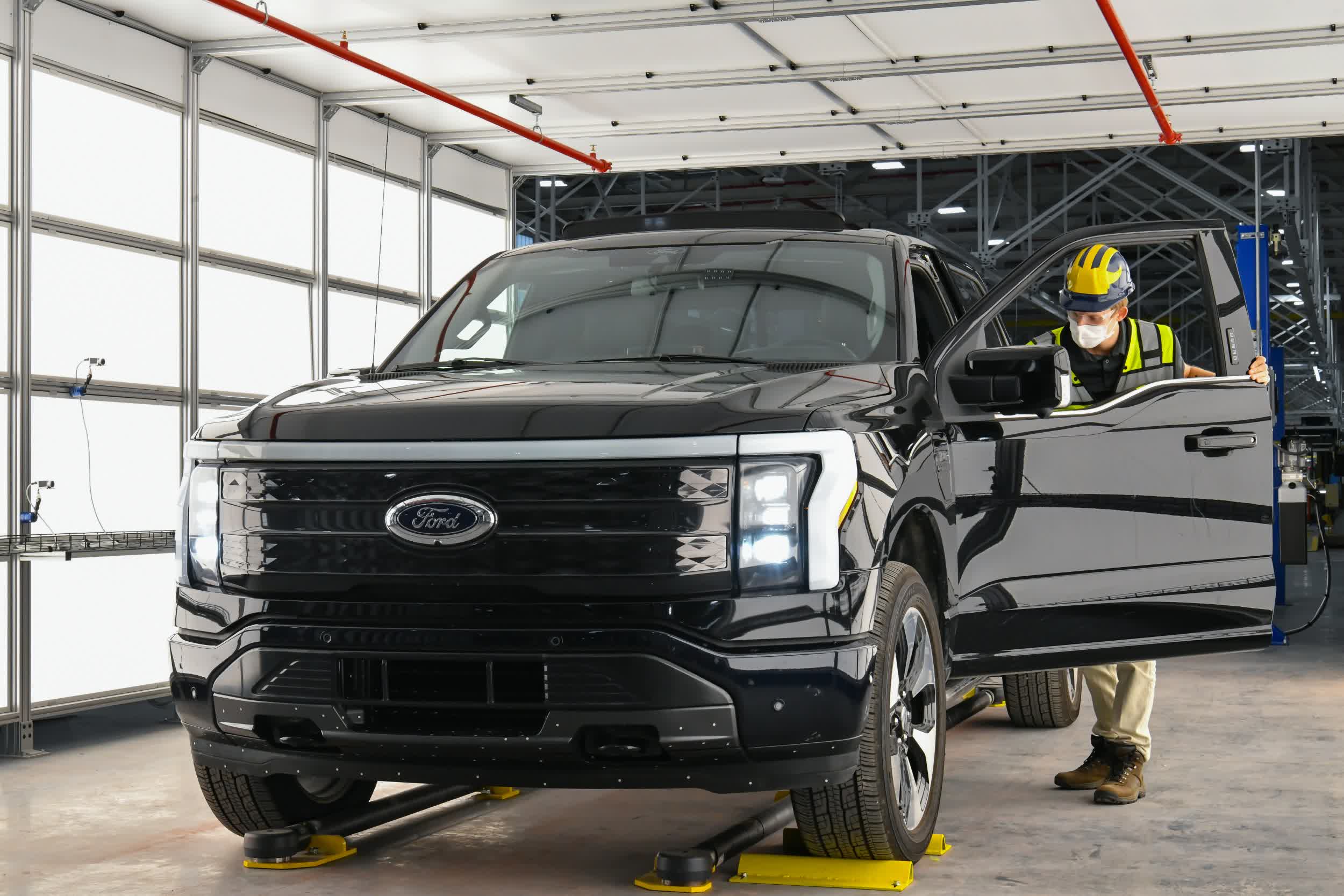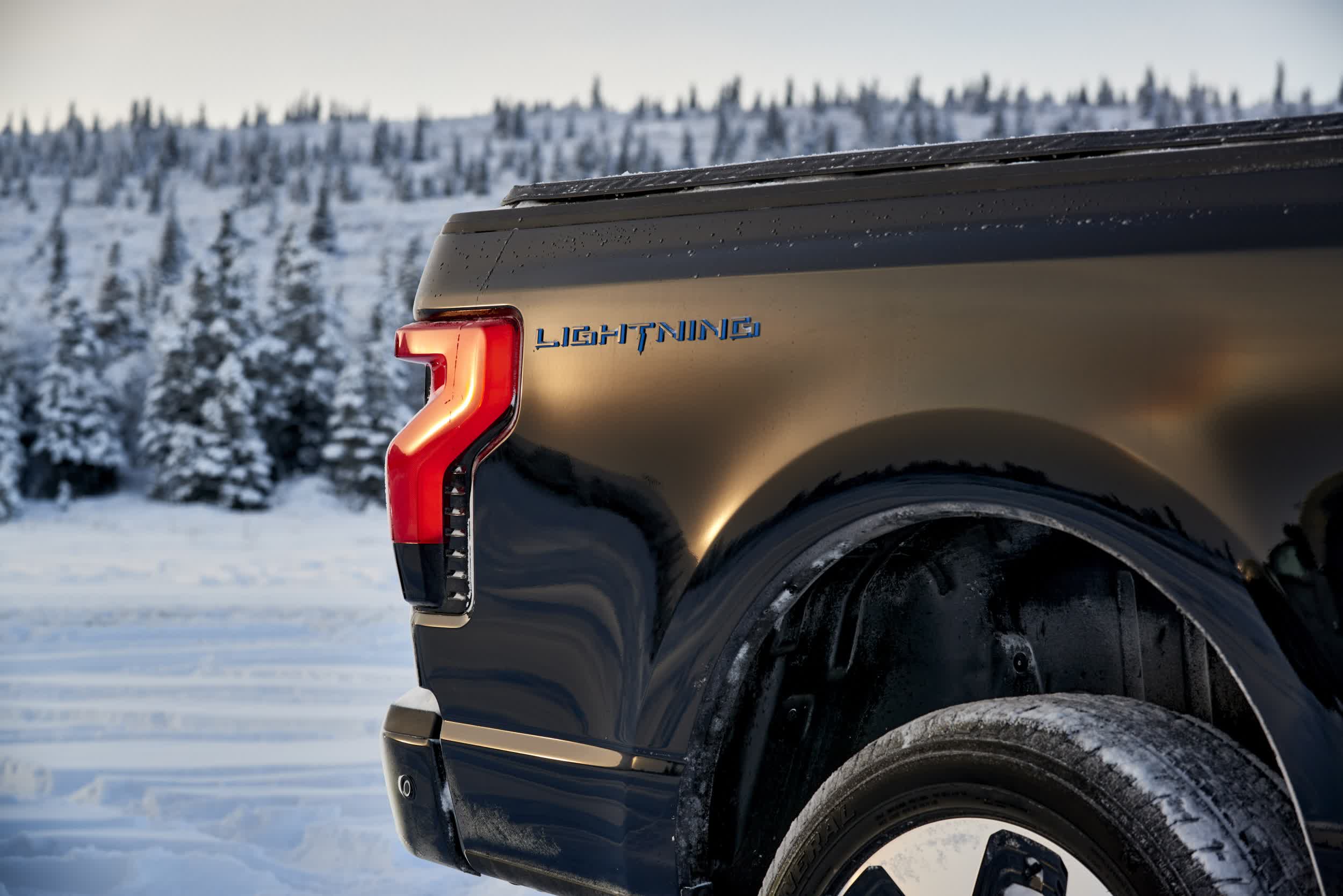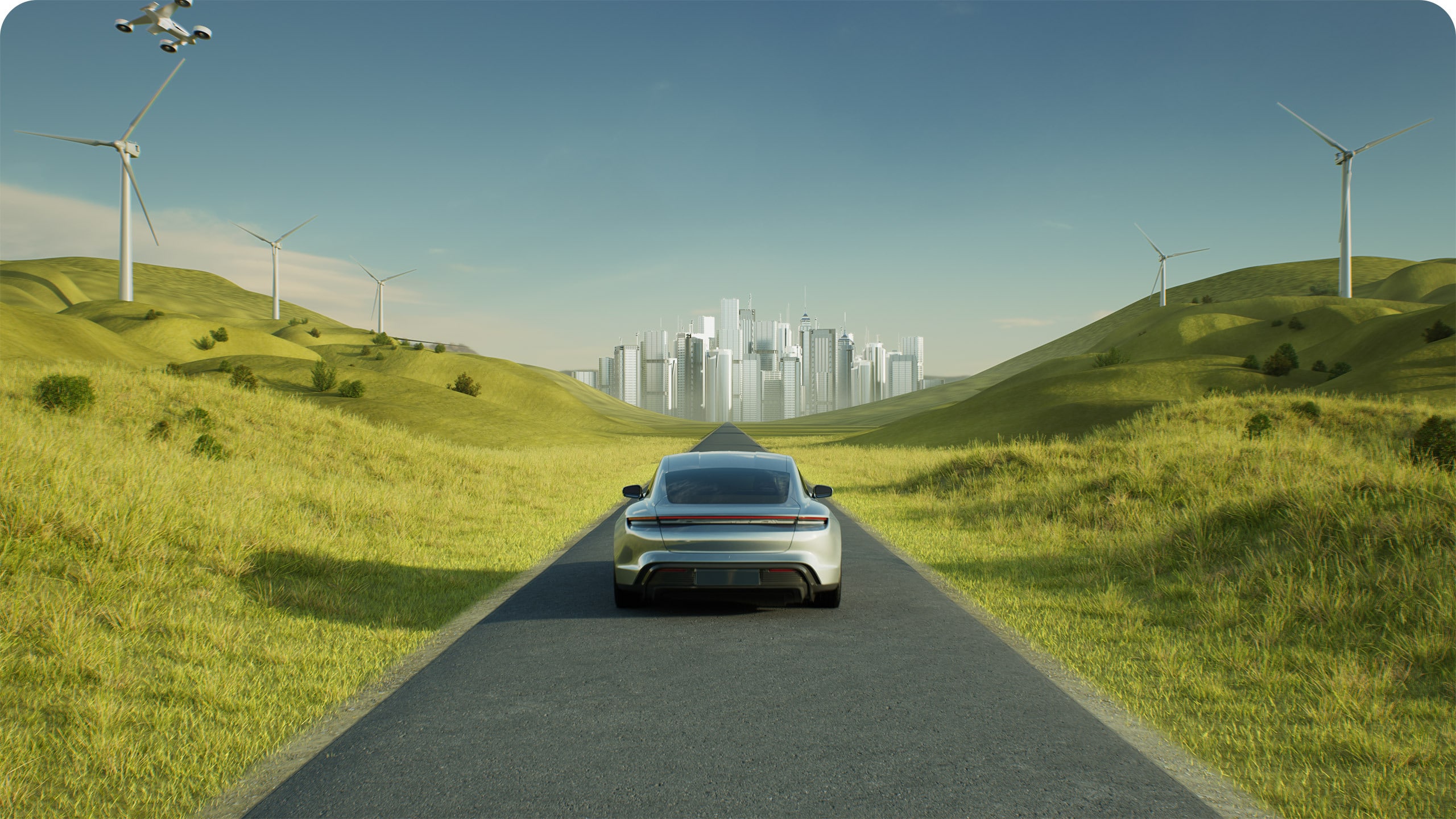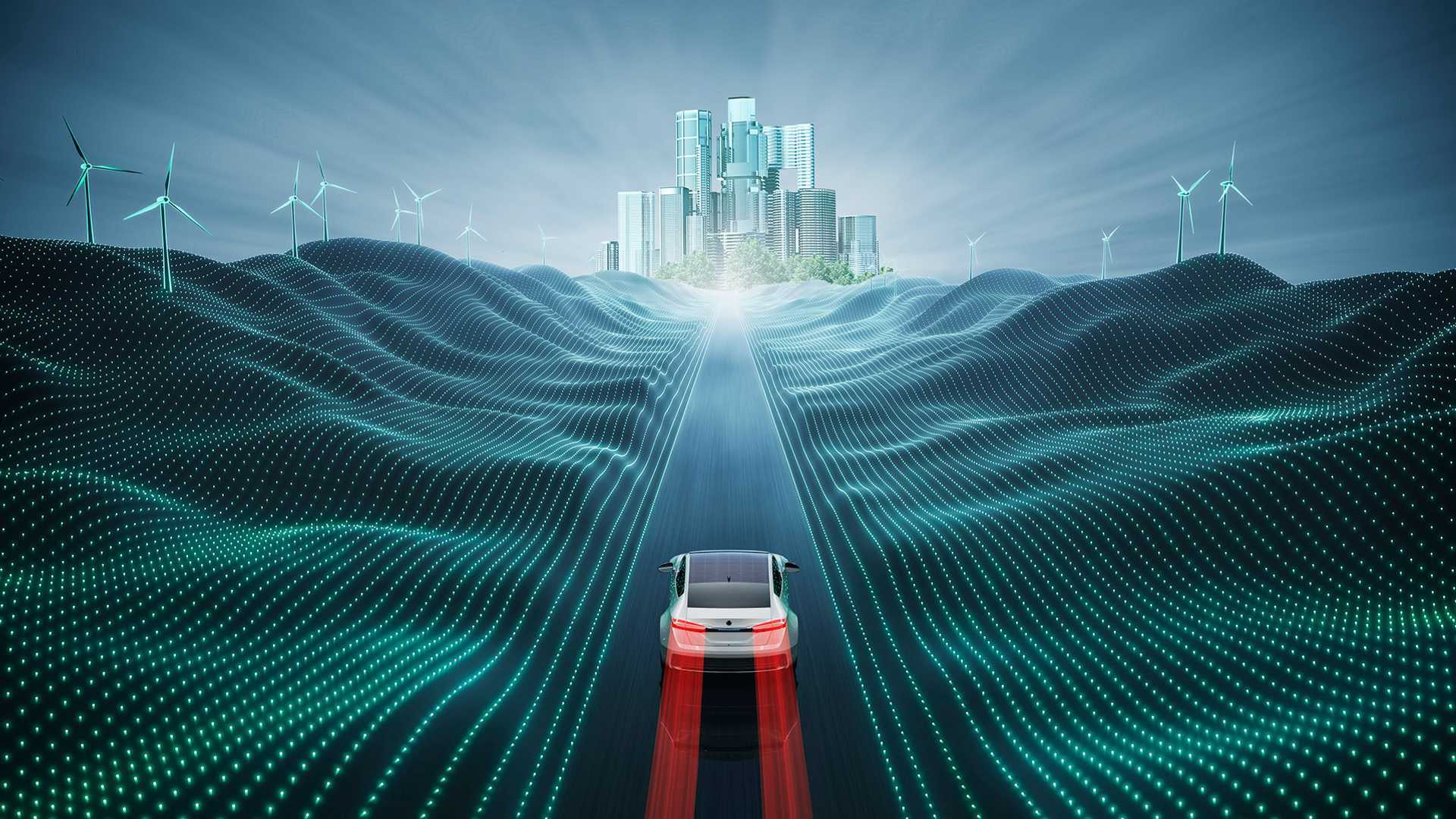What just happened? The Environmental Protection Agency (EPA) has released official range estimates for Ford's upcoming all-electric F-150 Lightning pickup. For buyers of select models, it is better-than-anticipated news by about 20 miles of range.

The base model F-150 Lightning Pro SR, which starts at $39.974, will come with a final EPA-estimated range of 230 miles on a single charge. The same holds true for the XLT SR and the Lariat SR models, while the Platinum topped its target estimated range by 20 miles – from 280 miles to 300 miles.
Similarly, the XLT ER and the Lariat ER (ER standing for extended range) will be good for a final EPA-estimated range of 320 miles.
For comparison, the base model Rivian R1T with the dual-motor configuration has an estimated range of 260+ miles while the Hummer EV starts at 250+ miles of range.

Ford introduced its electrified F-150 Lightning in May 2021 with two battery range options. Models equipped with the standard battery pack will generate 426 horsepower while those with the extended range battery option will be good for 563 horsepower. Both turn out 775 lb-ft of torque.
The new Lightning is also said to utilize the strongest steel ever put into an F-150 frame, and is the most aerodynamic F-150 to date. With the ER battery, it should be good for sprints to 60 mph in the mid-four second range.
The first models are expected to be delivered to customers this spring.
https://www.techspot.com/news/93869-ford-all-electric-f-150-lightning-rated-up.html



